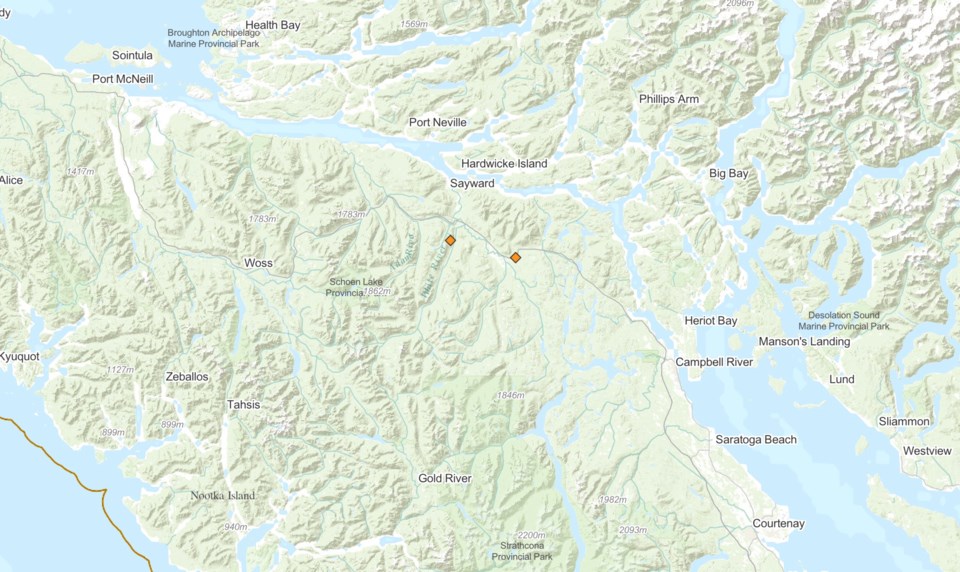The B.C. Wildfire Service says the continuing heatwave has prompted a campfire ban starting Thursday at noon for the entire Coastal Fire Region, which includes Vancouver Island.
The ban comes after a week of 30-degree-plus temperatures that broke daily records in many areas and no significant rainfall over the past month. The forest is drying and most areas show the fire danger risk as high and being elevated to extreme, said Jade Richardson, Coastal Fire Centre information officer.
“The goal of the campfire ban is to help prevent human-caused wildfires,” she said.
The coastal fire region had placed a ban on larger fires, such as brush piles, as well as fireworks in many areas on July 15.
The B.C. Wildfire Service was fighting two human-caused fires near Sayward on Tuesday morning. Both “spot fires” were small — about 100 square metres — and were being held and monitored.
The first fire at Big Tree Creek north of Sayward near Highway 19 was brought under control about 9 p.m. Monday.
A second blaze was reported southwest of Sayward on Tuesday morning, and a firefighting helicopter and five firefighters were brought into the area.
It is considered under control.
Richardson said campers and people using the backcountry should note that propane cooking devices can be used during a campfire ban, but the devices must have certified approvals and the flame cannot exceed 15 centimetres.
The B.C. Wildfire Service has had 123 fires reported in the past seven days, with nearly half reported as caused by humans.
There are currently 79 active fires in the province, most in the Interior.




